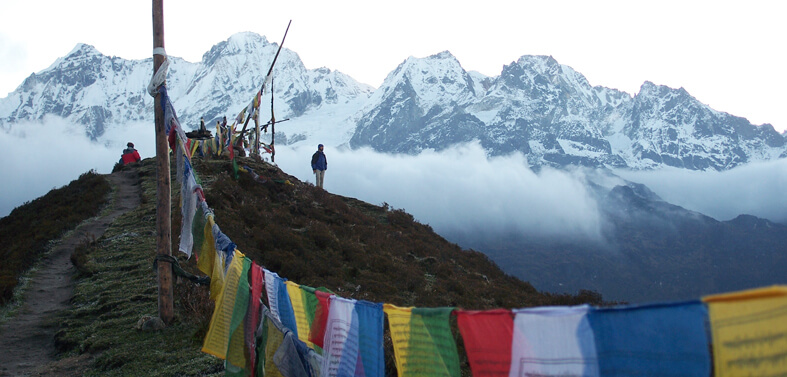It is always said that the small ones bring out the biggest revolutions. The second smallest state, Sikkim, has once again stood at the forefront of doing its for the protection of the environment. At a time, when environmentalists world over have opined about the grave consequences of global warming and increasing environmental concerns, India has stood up to the expectations of the universal community in various ways.
Sikkim was declared as “fully organic” in 2016 by Hon’ble Prime Minister Shri Narendra Modi. Sikkim has also been awarded the UN Food and Agriculture Organization’s (FAO) Future Policy Gold Award 2018, an environmentalist’s Oscar, beating 51 other nominations from across the globe. It is a matter of immense pride for every Indian that Sikkim is now adjudicated as world’s first organic state.
The Chief Minister of Sikkim, Shri Pawan Chamling received the award in Rome on Monday. He went on to say, “An organic world is definitely achievable. I also appeal to the world community that we do not carry out any Kind of development work and business at the cost of the environment”.
Presenting the award, the UN FAO Deputy Director Maria Helena Semedo said that Sikkim is an shining example on how to successfully transform the food system and ensure respect for people and planet and the award recognizes the state’s leadership and political will.
“Sikkim’s transition to organic farming has benefited over 66,000 family farmers, reaching beyond just organic production to include socioeconomic aspects such as consumption and market expansion, rural development and sustainable tourism with its comprehensive and inclusive approach”, she added.
It is very astonishing to note that, crowned by the icy ranges of Himalayas, Sikkim rests in the lap of a chilled land silently working since 1995 to achieve this position, today.
Sikkim, in 1995, banned the use of Paan Masala/Guthka and declared the year as “Harit Kranti Varsha” (Green Revolution Year) and distributed free seedlings for plantation. Continuing the struggle for creating a green environment further, Sikkim prohibited the disposal of non-degradable waste in public drains, and then went on to become the first state to ban use of plastics and non-degradable waste in 1998.
As soon as Prime Minister Narendra Modi took to office, he emphasized on providing all assistance to Sikkim in developing as an organic state. Speaking at the Sikkim Organic Festival back in 2016, the Prime Minister lauded the efforts of the state government for implementing central government schemes like the Soil health card and Fasal Bima Yojana successfully. These schemes, he added, have helped the farmers to motivate themselves for innovation and experimentation in agricultural activities. The Prime Minister had also lauded Gangtok (Capital of the state) for being listed in the Top 10 cleanest cities of the country under the Swacch Bharat Mission.
Interestingly, in the UN Climate Change Conference organized in 2015 at Paris, India reiterated its adherence towards an environment friendly growth, and pressed on the idea of sustainable development. Recently, Prime Minister Narendra Modi was awarded the Champions of the Earth, a top UN award for his immense contribution in the field of environmental protection. The Prime Minister’s vision of sustainable development is not only on paper, or on talks and speeches in front of the world community, but also on ground, is what the UN award for Sikkim portrays.
According to the United Nations, growing world markets for organic agricultural products offer interesting export opportunities for developing countries who may have some comparative advantage in Organic Agriculture due to relatively abundant labor and lower use of agrochemicals.
With the solid North East Policy of the NDA government at the center, inquisitive policies have been formed for the North Eastern states to use their natural resources for development of their economy. An extraordinary marvel for environmental protection, Sikkim, got its first airport, the Pakyong Airport, which shall boost Sikkim’s economy to a large extent. Sikkim, till now, a famous tourist attraction has now turned into an economic hub for sale of Organic Products. Inaugurated by the Prime Minister in September this year, the airport was under construction since it got its approval in 2009 due to the inefficient governance from the central government. Only after the NDA government took to office, the airport construction gained appropriate momentum as was thrown open for enormous opportunities in the Organic State.
Stressing on the inclusion of youth in this mission, Chief Minister Chamling, in Rome, eulogized the contribution of farmers as remarkable in the formation of an effective marketing strategy to sell away the organic produce in metro cities like Bengaluru and Delhi.
With the 2019 elections approaching the Indian political diaspora, such an international recognition proves to be a clear sign of effective governance strategies and sustainable policies to ensure an overall growth in the country which destroy the claims made by the opposition parties. Also, taking a responsible stand in the international community, with awards being presented to the Prime Minister himself, as well as the heads of states like Sikkim in the field of environment security, India is now panegyrized for its coherent approach towards nature and its protection.
It is an achievement for the country and especially the public of Sikkim for making India proud on an international platform and expressing solidarity with our ancient values towards mother nature.
